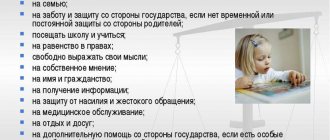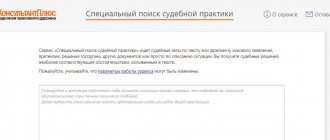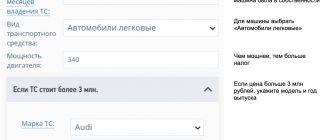Who to study for
Only an adult (over 35 years old) and sufficiently educated can become president. But the direction of education can actually be anything, since in no university you will find a faculty that trains presidents.
For example, the first president of the Russian Federation, Boris Nikolaevich Yeltsin, graduated from the Ural State Technical University and was a civil engineer by profession, and the current president, Vladimir Vladimirovich Putin, is a lawyer, a graduate of Leningrad State University.
According to the Sputnik news agency, out of 145 recognized presidents of the world, 29 people studied to become a lawyer, 19 - to become an economist or financier, and the same number - to become a military man. And only 11 for political scientists.
That is, when choosing a university, it makes sense for the future president to pay attention to areas that will definitely be useful to politicians and managers:
right,
finance,
international relationships,
management.
By the way, 15 heads of state mentioned in the Sputnik study do not have higher education at all. For example, George Weah, the President of Liberia, and Emomali Rahmon, the head of Tajikistan, who graduated from a vocational school with a degree in electrician.
Despite the fact that no law requires that the head of state have a higher education, it is better to take care of your own horizons and acquire knowledge that will help you make difficult, one might say, historical decisions as president.
Especially in Russia, where the majority have a higher education and it is required when hiring even for much more modest positions.
Valuable advice for future deputies
Advice on how to become a deputy of local or all-Russian authorities will help you work in a given direction. I think that on the first try, few people (without financial support and protection) can get into such a position, therefore, the main advice is to start working at least a year before the election date, and when the elections do not end with a positive result in your favor, keep moving. If you are deeply studying the technology of how to become a State Duma deputy in a district in Moscow, then, due to the large number of voters, rely on cooperation with top parties. It is important to understand for what period you are being elected, because, having studied and planned in advance how to become a deputy to parliament nominated in your city, it is worth offering an appropriate development strategy to voters.
Term of office of deputies in different countries of the world
| A country | Term of office of a deputy in a national body |
| Kingdom of Thailand | Senate - for 6 years Lower House - 4 years |
| Republic of France | Senate - 6 years National Assembly - 5 years |
| Republic of Ukraine | Supreme Council - 5 years |
| Russian Federation | State Duma and Federation Council - 5 years |
Interestingly, in Mexico a deputy cannot hold office twice. A similar rule applies to the current President.
Join any party
When reading advice on how to become a deputy of local authorities or even conquer the State Duma, you should understand that it is much more difficult to go through this path as a self-nominated candidate. The fact is that the mental traditions and psychology of our people are aimed at the collective consciousness, which means that those who are in the party have an easier time getting through. When choosing a suitable party, study the following aspects:
- popularity level by district;
- who represents it now;
- legislative initiatives;
- charter;
- features of the policy.
Surround yourself with new connections
Regardless of the body where you want to run, you need to expand your base of acquaintances in your city and throughout the country. New people are not only new knowledge, they are new opportunities that will help you achieve success. Thanks to such connections, you can find and form your team, attract sponsorship, and develop an effective information strategy. The more people, the more ideas. Don’t forget that you also need to look for specialists in certain industries.
Make a good election campaign
An election campaign is a well-planned set of activities aimed at a specific audience. Having studied the current rating of Putin and Trump, you can see that some points in the company were not very warmly received by people, but they voted for them. It is necessary not only to promise real things that can be fulfilled, but also to draw up a program taking into account competence. For example, a city deputy does not make decisions regarding the state’s foreign policy, but a city councilor takes part in the distribution of local budget funds and can lobby for the allocation of a certain amount for education or support for veterans.
Find some trusted people
Having studied how to become a deputy of the city council or local government, you should not try to do everything yourself. With the help of assistants - trusted persons, you can:
- reach a larger number of people in communication, understand their goals and desires;
- free yourself from solving certain issues, for example, bureaucratic ones;
- distribute the completion of tasks to obtain a final positive result.
For a small city, such people are extremely important, especially in developing an effective communication strategy.
Work with observers and CEC members
It is not enough to theoretically understand how to become a politician; it is important to study all the pitfalls and nuances. One of them is communication with CEC members and observers. These people know the electoral process from the inside and can tell you the legislative nuances. It is important that CEC members also monitor the correctness of campaigning: at the permitted time, in the places where it takes place. To summarize, I would like to say: there is not so much information on how to become a deputy in the Russian Federation or Ukraine.
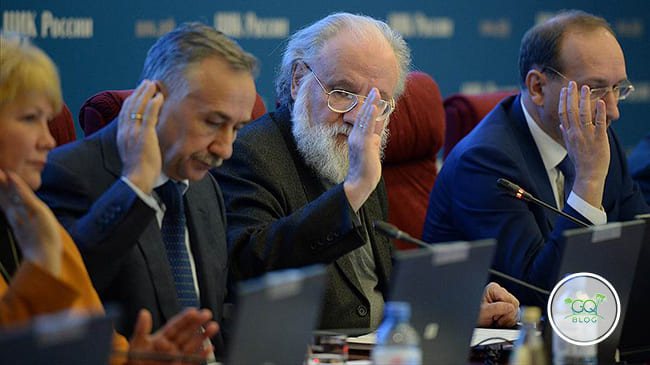
These are either quotes from the legislative framework, or the experience of those people who ran for office or have already served for one or more terms. It is important that both an individual entrepreneur and a person working in a commercial organization can become a deputy, and how to become a self-employed person is already on the online pages of the blog. Remember that politics is not a very clean thing; Pavel Grudinin, who ran for the post of President of the Russian Federation, like others, could feel the delights of the information attack of competitors. I wish everyone who sees the strength in themselves, feels the desire and desire to conquer the parliamentary Olympus, join the party, win the elections and fulfill all previously given obligations.
See also:
- The most popular professions in 2021: which diplomas are valuable and financially profitable in the labor market
- What is money management and risk management: effective strategies that are important for traders of different markets to know about
- 7 professions for making quick money on the Internet - a book that provides choice and motivates
Author Ganesa K.
A professional investor with 5 years of experience working with various financial instruments, runs his own blog and advises investors. Own effective methods and information support for investments.
Who to work with
Work experience is as important for a future president as a good education.
It is unlikely that you can get such a high position without becoming a respected member of society and a recognized professional in your field. Experience in management - municipal or state - will be useful.
You should definitely learn how to resolve conflicts and find a way out of difficult situations. In this regard, the future president must have an analytical mind, a penchant for diplomacy, and well-developed emotional intelligence.
general information
The electoral systems of different countries have their own conditions. For example, in a number of countries (England, Sweden, the Netherlands and Saudi Arabia) monarchs rule
. Their rule is inherited from the older generation to the younger. Monarchs are not elected every few years, but Parliament and other leaders may be chosen.
But in the republics
They choose the president, whose term of office is regulated at the legislative level. In presidential republics, the leader is chosen by the population of the country, and not by the highest ranks. Deputies or other officials have the right only to nominate their candidates, and if it is a parliamentary republic, then to elect the president.
Each republic sets its own specific requirements for presidential candidates
. Most often these include:
- citizenship or country of birth;
- length of residence in the country;
- age;
- education;
- possession of rights (political and civil)
- other.
Additionally, requirements may be established, but not for presidential candidates, but for current heads of state. For example, in Germany
the president has no right to hold other positions in the government system.
But in the United States
, the president can be both the head of state and the executive branch.
In addition, voters or political parties can nominate a presidential candidate. For example, in Egypt
a candidate can be nominated from a party, provided that 2/3 of the entire parliament supports such a decision.
And in some countries, a special deposit is required to register a presidential candidate. Armenia can serve as an example
, in which the amount of the electoral deposit is 8 million drams (approximately 1.215 million Russian rubles).
The deposit is returned if certain conditions are met, for example, at least 5% of local residents voted for the candidate or he must advance to the second round of elections. Thus, some countries limit the possibility of an unlimited number of candidates.
After a certain period of time, the president must be re-elected or vacate the post.
In different countries, there is a limit on serving as head of state a certain number of times in a row. Mexican law
prohibits re-election of the same presidential candidate two times in a row. And in the USA, a president can be re-elected only 1 time (2 reigns, no matter if they are consecutive or not), although during the time of Franklin Roosevelt this rule did not exist, and he was elected president 4 times.
What are the requirements for a presidential candidate in Russia
To understand the requirements for a presidential candidate in our country, we read the Constitution of the Russian Federation. Here's what it says:
A citizen of the Russian Federation who is at least 35 years old, who has been permanently residing in the Russian Federation for at least 25 years, who does not have and did not previously have citizenship of a foreign state or a residence permit or other document confirming the right to permanent residence of a citizen of the Russian Federation for territory of a foreign state.
Accordingly, the ideal presidential candidate:
has already celebrated its 35th anniversary,
is a citizen of Russia,
have never been a citizen of another country.
There is only one exception to these requirements. People who had USSR citizenship are automatically recognized as Russian citizens by birth if they were born on the territory of the Russian Federation or if at least one of the parents was a citizen of the USSR at the time of the child’s birth and permanently resided on the territory of the Russian Federation.
There are other important requirements. For example, a candidate must reside permanently in Russia for at least 10 years before submitting an application to the Central Election Commission (CEC). Of course, he must be capable and “clean” before the law, that is:
Do not have an unexpunged or outstanding conviction for committing a serious, especially serious crime or a crime of an extremist nature.
Do not have a felony conviction that was expunged or expunged less than 10 years before the start of the election campaign. As well as a conviction for a particularly serious crime, withdrawn or expunged less than 15 years before the start of the presidential race.
Not be subject to administrative punishment for demonstrating or distributing extremist symbols at the time when the presidential elections of the Russian Federation are taking place.
Not be deprived of the right to hold public office for a period ending after the presidential election.
How long is the President of the Russian Federation elected?
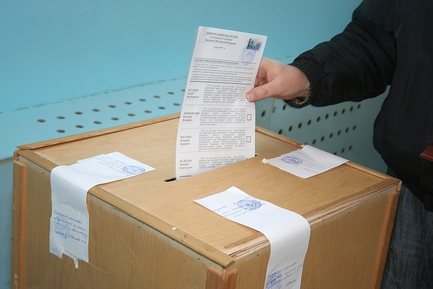
According to Art. 81 of the basic law of the country, the President of the Russian Federation is elected for a term of 6 years. The first President, elected in 2012 for a 6-year term (until 2018), is V. Putin.
The increase in the period is explained, in particular, by the fact that 4 years is not enough to carry out reforms and fully solve problems of a socio-economic and political nature. And citizens cannot give an objective assessment of the activities of the head of state over such a short period of time.
Presidential elections, according to Russian law, are carried out through a secret popular vote; the date of their holding is notified by the Federation Council no later than 90 days in advance.
How to run for president
To begin with, submit documents to the CEC. This can be done only after she announces the exact date of the presidential elections in the Russian Federation. Parties make a decision about which of their members will run for office within 25 days of setting the election date.
A self-nominated candidate will have to assemble a group of at least 500 people, who, in the presence of a CEC representative, will decide on nominating a candidate. The candidate, in turn, must provide the CEC with consent to participate in the elections - this must be done within 20 days from the date of announcement of the election date.
Among the documents that need to be provided to the CEC are information about the income of the candidate and his (her) spouse for the last six years, expenses for three years, and the availability of property and real estate for all family members.
The candidate must not have accounts in foreign banks, but must have a special election account.
The second stage of the “presidential race” is the collection of signatures. It applies only to members of those parties that are not members of the State Duma and self-nominated candidates. The first will have to get 100-105 thousand signatures throughout the country (no more than 2,500 in each region), and the second - 300-315 thousand (no more than 7,500 from one region).
They must be submitted to the CEC no earlier than 80 and no later than 45 days before the start of the elections. CEC members will check signatures for candidates randomly, and if more than 5% of the signatures are found invalid, the candidate will be denied registration.
What is the work of a deputy, rights and responsibilities
Having learned how to become a deputy of the State Duma, we next get acquainted with direct responsibilities. Since this is a legislative body, the deputy must:
- take legislative initiatives;
- participate in the work of committees, take part in voting;
- follow parliamentary discipline.
I would like to add that a deputy must help people: not only those who elected him, but also many others. Must meet periodically and report on work results.
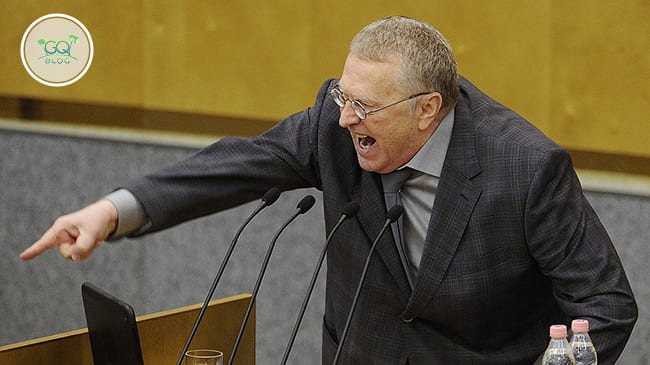
What to do to win elections
After the candidate has been registered and received a presidential candidate certificate, the election program begins. Candidates for the position of head of state publish policy statements. In them, they describe the goals they would like to achieve as president and how they plan to implement their plans.
Voters become familiar with the text of the program both on the candidates’ websites and during pre-election meetings. The job of a presidential candidate is to show people that their needs and problems are well known and understood, and most importantly, that there is a clear plan to solve them.
The outcome of the election depends on how well the candidate manages to win over people and instill confidence in them. If he copes with this task and more than half of the Russians who came to the polling stations on election day vote for him, then he will become the winner and take the post of head of state.
National image of the president
In addition to the requirements provided for by law, there are a number of points that the public usually pays attention to. And although they are not spelled out in the Constitution, these conditions can seriously affect the course of the election race. Usually the most important are:
- Candidate's career. Advantage is usually given to persons who have already worked in the political sphere, or at least to large businessmen familiar with the management of large enterprises.
- Political orientation. For almost two hundred years, the presidency has not been occupied by non-partisan candidates. The vast majority of the population leans toward representatives of either the Democratic or Republican parties. Other political forces in the country do not have serious weight.
- Family status. Candidates who have managed to start a family are more trusted by the American public than childless bachelors. Which, however, does not prevent people involved in various juicy stories from holding the presidency.
- Floor. Despite the fact that America is considered a country of democratic values, women rarely run for president, and so far none of them have managed to lead the country. In the entire history of the United States, only nine women have become presidential candidates.
- Money. The path to the White House is not only thorny, but also expensive. If a participant in the presidential race wants to be recognized on the streets and his ideas broadcast on every television channel, he must spend a lot of money on the election campaign. During the campaign, the future president will have to look for partners in the media, install billboards, print posters, travel around the country with speeches and press conferences, or even launch the production of souvenirs. All this requires colossal investments. In the history of American elections, there have been frequent cases when candidates had to withdraw from the race for the presidency due to lack of money.
conclusions
Thus, the following situation arose. On the one hand, there are restrictions provided for by the law on elections of the head of state, according to which Navalny will not be able to participate in elections for at least 10 years from the moment his criminal record is cleared. On the other hand, the “second” decision in the Kirovles case (which was made after the decision of the ECHR) copies the “first” decision, which seems to have been adopted in violation of the Convention for the Protection of Rights and Fundamental Freedoms. And the decision in the “Yvrocher case” was also made in violation of the Convention in terms of the right to a fair trial (ECtHR decision).
Navalny refers to the Constitution, which states that citizens held in prison by a court sentence do not have the right to elect or be elected . And he is not in prison.
Thus, according to the oppositionist, it turns out that there is a conflict. The Constitution limits only persons in prison, and the law on presidential elections introduces additional expansive restrictions unjustifiably, since the Constitution defines the full list of persons who cannot run for office.
I believe that in fact Navalny will not be allowed to participate in the presidential elections on the grounds that he has a criminal record and must wait the period prescribed by law. However, I have certain doubts about the constitutionality of such a provision. But this is already within the competence of the Constitutional Court.
Navalny's restrictions
It is known that the oppositionist is regularly brought to administrative or criminal liability and also regularly and successfully defends his rights in the ECHR. Thus, if at a certain moment Navalny meets all the necessary criteria provided by law, he will be able to become a presidential candidate.
I am currently aware of the following limitations:
- The verdict in the “Kirovles case” under Part 4 of Art. 160 of the Criminal Code of the Russian Federation for organizing the embezzlement of someone else’s property on an especially large scale. This crime is classified as a serious crime; accordingly, the oppositionist will not be able to run for office for 10 years after the conviction is cleared.
Let me remind you that there were two verdicts in the “Kirovles case”. The first verdict was overturned by the Supreme Court after the ECHR decision. The European Court indicated that the Russian court limited the oppositionist’s right to a fair trial; the court did not examine Navalny’s statement about the political motive of the case. In addition, the ECHR indicated that the case was opened after a direct order from the head of the Investigative Committee (in respect of whom the oppositionist was conducting an anti-corruption investigation) and that Navalny’s actions did not differ from ordinary commercial activities.
- The YvesRocher case. Alexey and his brother Oleg were accused of committing large-scale fraud and money laundering. Alexei received a suspended sentence, but his brother received a real one; he was sent to prison. The offense is classified as serious.
An appeal was filed with the ECHR against the court's decision in the case. The European Court ruled that the brothers were deprived of their right to a fair trial.

